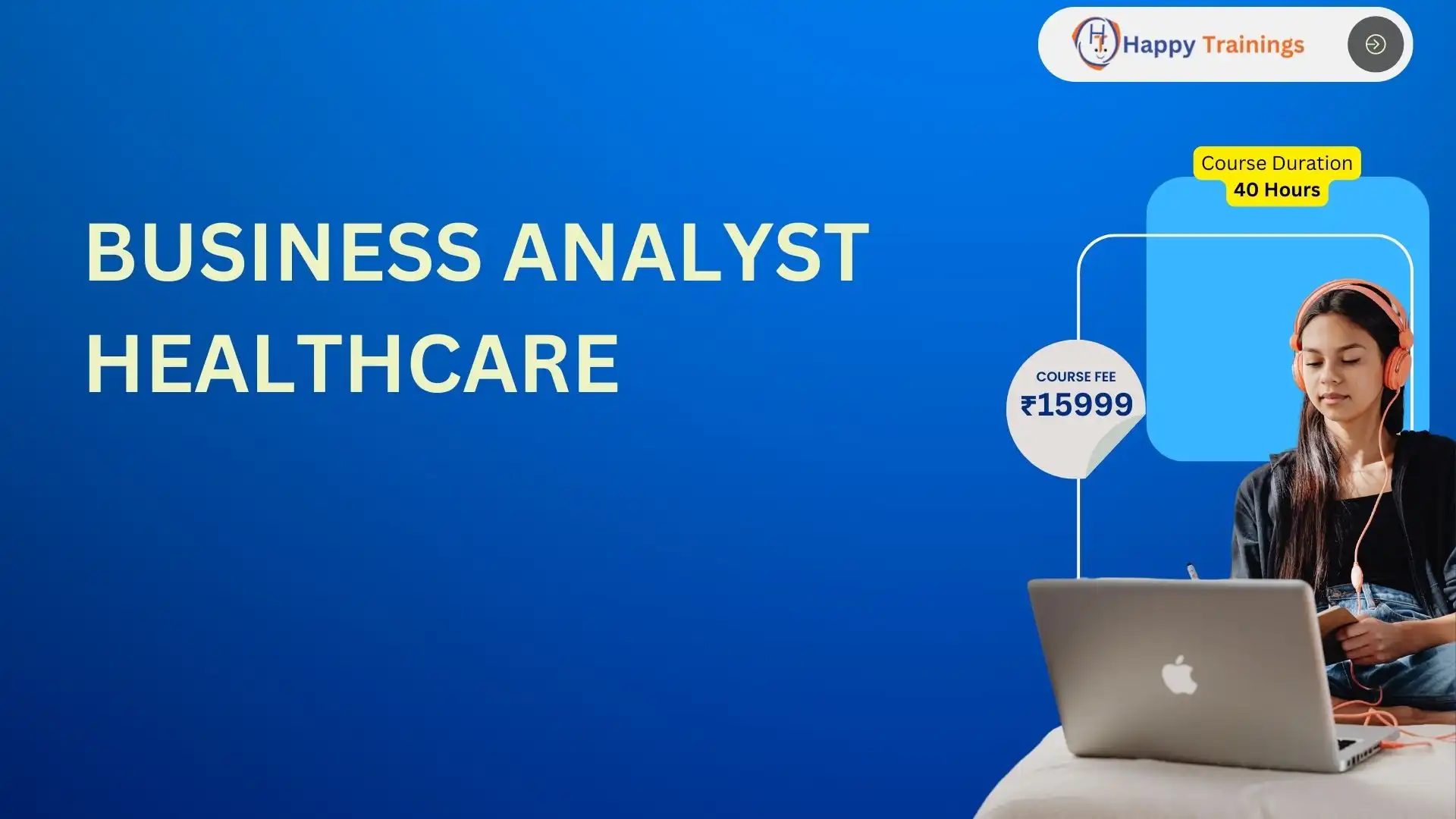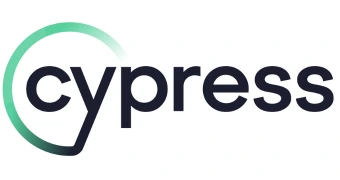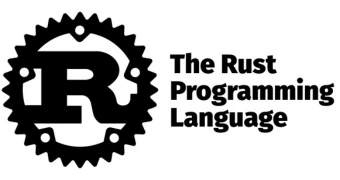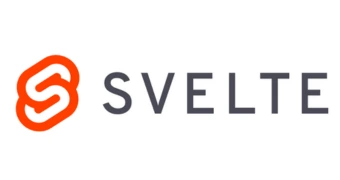Business Analyst Healthcare Training in Hyderabad

Business Analyst Healthcare Course Overview
A course in Business Analyst Healthcare covers an overview of the healthcare industry, business analysis methodologies, healthcare information technology, project management, data analysis, communication, compliance, emerging trends, and critical thinking. It also includes case studies and projects for practical application of skills. The course prepares students for roles such as healthcare business analyst, healthcare systems analyst, healthcare project manager, and healthcare data analyst.
Business Analyst Healthcare is a program of study designed to provide students with the knowledge, skills, and practical experience necessary to work as a business analyst in the healthcare industry. The course typically covers a range of topics, including healthcare industry fundamentals, business analysis methodologies, project management, healthcare information technology systems, data analysis, communication and collaboration skills, healthcare regulations and compliance, and critical thinking and problem-solving. The course may also include case studies and real-world projects to give students hands-on experience applying their skills to healthcare industry problems. Upon completion of the course, students may pursue roles such as healthcare business analyst, healthcare systems analyst, healthcare project manager, and healthcare data analyst.
Business Analyst Healthcare Training Details
| Training Mode: | Live Instructor-led (online) |
| Course Duration: | 40 Hours |
| Session Duration: | 1h / Day ( Weekdays) |
| BA Healthcare Course Fee: | Rs.15999 / $199 |
| Trainer: | Experienced faculty with 5-15+ years of industry-rich experience |
| New Batch Schedule on: | 29-Apr-2024 8:00:am IST (Weekdays) |
With Happytrainings’s Business Analyst Healthcare Course You Will:
- Gain in-depth knowledge of the healthcare industry and its unique business requirements.
- Learn essential business analysis techniques and methodologies specific to healthcare.
- Master healthcare data analysis, process improvement, and stakeholder collaboration.
- Prepare for certifications and enhance your career in healthcare business analysis.
Business Analyst Healthcare Course: Who Should Enroll?
-
Aspiring Business Analysts: Individuals looking to enter the healthcare industry as business analysts and want to develop a specialized skill set.
-
Healthcare Professionals: Medical professionals, nurses, administrators, or healthcare practitioners interested in transitioning to a business analyst role within the healthcare sector.
-
IT Professionals in Healthcare: IT professionals working in healthcare organizations who want to enhance their business analysis skills and gain a deeper understanding of healthcare-specific requirements.
-
Healthcare Administrators: Professionals involved in healthcare administration, operations, or management who want to broaden their knowledge and contribute to process improvements through business analysis.
-
Healthcare Consultants: Consultants working in the healthcare domain who wish to strengthen their analytical skills and provide valuable insights to clients.
-
Graduates and Students: Recent graduates or students pursuing degrees related to healthcare management, business administration, or information technology who want to specialize in healthcare business analysis.
Enroll in our Business Analyst Healthcare Course to acquire the necessary knowledge and skills to excel as a business analyst in the healthcare industry.
Prerequisites of Business Analyst Healthcare Course
-
Basic Knowledge of Business Analysis: Familiarity with core business analysis concepts, techniques, and methodologies will provide a foundation for the healthcare-specific aspects covered in the course.
-
Understanding of Healthcare Industry: A basic understanding of the healthcare industry, including healthcare systems, processes, and terminology, will be beneficial for comprehending the healthcare-specific challenges and requirements discussed in the course.
-
Proficiency in Communication and Documentation: Strong communication and documentation skills are essential for business analysts. Prior experience in writing business requirements, use cases, and functional specifications will be helpful.
-
Basic IT Skills: Basic knowledge of information technology concepts and tools will aid in understanding the technical aspects of healthcare systems and working collaboratively with IT teams.
-
Analytical and Problem-Solving Skills: Business analysts need strong analytical and problem-solving abilities to gather and analyze healthcare data, identify issues, and propose effective solutions.
While these prerequisites are recommended, individuals with a genuine interest in healthcare business analysis and a willingness to learn can still enroll in the Business Analyst Healthcare Course and acquire the necessary skills and knowledge.
Learning Objectives of Business Analyst Healthcare Course
- Understand the healthcare industry, its structure, and regulatory landscape.
- Learn healthcare-specific business analysis techniques and methodologies.
- Analyze healthcare systems, workflows, and data to gather and document requirements.
- Collaborate effectively with stakeholders, including healthcare professionals and IT teams.
- Gain practical experience through real-world case studies and projects.
- Develop strong communication and documentation skills.
- Stay updated with healthcare industry trends and regulations.
- Prepare for a successful career as a business analyst in the healthcare sector.
Business Analyst Healthcare Course Content
Unit 1: IT Industry Fundamentals for Business Analysts
- Module 1: Software Development Life Cycle
- Module 2: Software Development Methodologies – Water Fall, Iterative, Agile, etc.
- Module 3: Types of Software Projects – Greenfield, Migration, Product Customization, Maintenance etc.
- Module 4: IT Implementation
- Module 5: IT Deployment Environments – SAAS, On Premise, Client Server etc.
- Module 6: Software Licensing, Subscription and Sale Models
- Module 7: Project Development Vs Product Development
- Module 8: RUP , DevOps Methodologies
Unit 2: Business Process Analysis
- Module 1: What is a Business Process
- Module 2: Critical Analysis of a Business Process
- Module 3: Business Process Analysis Sparx System Framework
- Module 4: Business Process Mapping & Flow charting
- Module 5: As Is – To Be Analysis For a Business Process
- Module 6: Business Process Mapping and Modelling Frameworks
- Module 7: Business Process Mapping and Modelling Software
- Module 8: Business Process Re-Engineering & Re-Design
- Module 9: Business Process Automation, Disinter mediation and Re-intermediation
- Module 10: Business Process Simulation
Unit 3: Requirements Process - The Core of Business Analysis Activity
- Module 1: What is a Requirement
- Module 2: Attributes of Requirements
- Module 3: Importance of Requirements for IT Projects
- Module 4: Types of Requirements : Business, Enterprise, Solution, Stakeholder, Transition
- Module 5: Overview of Requirements Engineering and Management
- Module 6: Requirements Basics : Mapping, Modelling, Traceability Matrix, Tracking
- Module 7: Business Process Re-Engineering & Re-Design
- Module 8 : Important Requirement Process Steps : Elicitation, Analysis, Documentation, Validation, Management
- Module 9 : Requirement Software Companies - JIRA, Rational Requisite Pro
Unit 4: Stakeholder Analysis and Management
- Module 1: Stakeholder Definition
- Module 2: Importance of Stakeholder
- Module 3: Stakeholder Identification – Onion Diagram
- Module 4: Stakeholder Identification – Wheel
- Module 5: Stakeholder Classification – Power Influence Matrix
- Module 6: Stakeholder Engagement Techniques – Power/Influence Vs Interest
- Module 7: Stakeholder RACI Chart, its preparation through Visio
- Module 8: Stake Holder Persona
- Module 9: Stakeholder Alignment and Sponsorship
- Module 10: Managing Internal stakeholders
- Module 11: Preparing Stakeholder map through Excel
Unit 5: UML- Unified Modelling Language for the Business Analyst
- Module 1: History of UML , its founding fathers and role of OMG (Object Management Group)
- Module 2: UML Diagrams –UML Structure and UML Behavior Diagrams
- Module 3: Important UML Diagrams for IT Business Analysts
- Module 4:Overview of UML Structure Diagrams
- Module 5: Activity Diagrams
- Module 6: Use Case Diagrams
- Module 7: State Machine Diagrams
- Module 8: Sequence Diagrams
- Module 9: Deployment Diagrams
- Module 10: Other UML Diagrams
Unit 6: Business Process Model and Notation
- Module 1: What is BPMN
- Module 2: Origin of BPMN -BPMI (Business Process Management Institute) and OMG (Object Management Group)
- Module 3: BPMN Notations
- Module 4: Importance of BPMN
- Module 5: Types of Process Modelling – Process Maps, Models, Descriptions
- Module 6: BPMN Elements : Flow Objects, Data, Swim Lanes, Connecting Objects, Artifacts
- Module 7: BPMN Software : Bizagi, Oracle BPM, Calypso
- Module 8: Model Validation, Process Validation, Process Simulation through Bizagi
Unit 7: Business Analysis Techniques
- Module 1: SWOT Analysis
- Module 2: 5 Why Root Cause Analysis
- Module 3: MoSCoW, MOST
- Module 4: PESTLE
- Module 5: 6 Thinking Hats
Unit 8: Requirements Elicitation, Collaboration and Techniques
- Module 1: Requirement Elicitation: What and When
- Module 2: Prepare for Requirement Elicitation
- Module 3: Conduct Requirement Elicitation Activity
- Module 4: Document Requirement Elicitation Results
- Module 5: Confirm Requirement Elicitation Results
- Module 6: Prepare for Requirement Elicitation
- Module 7: Conduct Elicitation Activity
- Module 8: Document Elicitation Results
- Module 9: Manage Stakeholder Collaboration
- Module 10: Requirement Elicitation Technique Interviews
- Module 11: Requirement Elicitation Technique Brainstorming
- Module 12: Requirement Elicitation Technique Focus Groups
- Module 13: Requirement Elicitation Technique Survey and Questionnaires
- Module 14: Requirement Elicitation Technique Joint Application Development (JAD) Sessions
- Module 15: Role play via a case study
Unit 9: Requirements Analysis
- Module 1: Requirements Analysis : What and When
- Module 2: RA: The Business Analyst Tasks
- Module 3: Prioritize Requirements
- Module 4: Specify and Model Requirements
- Module 5: Define Assumption and Constraints
- Module 6: Verify Requirements
- Module 7: Validate Requirements
Unit 10: Wireframes and Prototypes
- Module 1: Wireframes. Mock-ups and Prototypes Essentials
- Module 2: Wireframe preparation exercise through Balsamiq 4.0
- Module 4: Prepare mock-up of Android Payments App
- Module 5: Prepare Apple iPhone home screen mock-up
- Module 6: Low-fidelity and Hi-fidelity mock-up’s
- Module 7: Prototyping through PowerPoint
Unit 11: Requirements Documentation - BRD, FRD, SRS Preparation
- Module 1: Requirements Documentation Best Practice's
- Module 2: What are Business Requirements
- Module 3: BRD (Business Requirement Document) - Template Structure
- Module 4: Preparing a BRD
- Module 5: FRD (Functional Requirement Document) - Template Structure
- Module 6: Preparing a FRD
- Module 7: SRS (Software Requirement Specification) Template Structure
- Module 8: Preparing a SRS
- Module 9 : Leveraging MS Word to prepare long reports
Unit 12: Agile Business Analysis
- Module 1: Agile Software Development – An Overview
- Module 2: Agile Manifesto and Philosophy
- Module 3: Agile Methodology
- Module 4: Agile Software Development Lifecycle
- Module 5: Scrum
- Module 6: Managing Sprint Planning, Daily SCRUM, Sprint Review & Sprint Retrospectives
- Module 7: Three Roles in Scrum : Scum Master, Product Owner and Development Team
- Module 8: Preparing Product Backlog, Sprint Burn Down Charts
- Module 9: Preparing Agile Project Charter
- Module 10: Xterme Programming, Kanban
- Module 11: Writing User Stories
- Module 12: Story Points and Estimation on SCRUM projects
Unit 13: SQL and Database Concepts for the IT Business Analyst
- Module 1: Database concepts and the 3rd Normal Form, Primary Key, Foreign Key and Database design
- Module 2: SQL Data Definition Language Statements : Create, Alter and Drop
- Module 3: SQL Data Manipulation Language Statements : Insert, Update and Delete
- Module 4: SQL Data Query Language : Select
- Module 5: SQL DCL : Grant and Revoke
- Module 6: SQL TCL Commit, Save point, Rollback
- Module 7: Basic DBA (Data Base Administration) Concepts
Unit 14: Software Quality Assurance & User Acceptance Testing for the IT Business Analyst
- Module 1: Software Quality Assurance and its importance
- Module 2: Black Box, Box and Grey Box Testing
- Module 3: Manual and Automation Testing
- Module 4: Automation Testing Tools : Silk, Load runner
- Module 5: Successful User Acceptance Testing for the IT Business Analyst
- Module 6: Software Testing at the client site for every release
- Module 7: Managing client / development team relationship under environments where a release has failed
Unit 15: Domain Knowledge: Ecommerce
- Module 1: Introduction to Ecommerce
- Module 2: Types of Ecommerce
- Module 3: Advantages of Electronic Commerce over Traditional Commerce
- Module 4: Business-to-Consumer (B2C) Model
- Module 5: Business-to-Business (B2B) Model
- Module 6: Consumer-to-Consumer (C2C) Model
- Module 7: Consumer-to-Business (C2B) Model
- Module 8: Benefits of eCommerce Domain and how to make career in it
Unit 16: Domain Knowledge: Healthcare
- Module 1: Health care domain- an Introduction
- Module 2: Overview of Healthcare Industry
- Module 3: History of Healthcare Industry
- Module 4: Healthcare Plans
- Module 5: How to test health care applications?
- Module 6: Health Insurance Portability and Accountability Act (HIPAA)
- Module 7: Benefits of Healthcare Domain and how to make career in it
Unit 11: Requirements Documentation - BRD, FRD, SRS Preparation
- Module 1: Health care domain- an Introduction
- Module 2: Overview of Healthcare Industry
- Module 3: History of Healthcare Industry
- Module 4: Healthcare Plans
- Module 5: How to test health care applications?
- Module 6: Health Insurance Portability and Accountability Act (HIPAA)
- Module 7: Benefits of Healthcare Domain and how to make career in it
Business Analyst Healthcare Course Reviews
Find Business Analyst Healthcare Training in other cities
FAQ's For Business Analyst Healthcare Training Course
While prior experience in healthcare is beneficial, it is not a prerequisite. The course covers healthcare-specific concepts and provides an understanding of the industry, making it suitable for both experienced professionals and newcomers.
Yes, the course will cover healthcare regulations and compliance requirements to ensure that you understand the legal and regulatory aspects related to healthcare business analysis.
Upon completion, you can pursue various career paths, including healthcare business analyst, healthcare data analyst, healthcare project manager, or healthcare systems analyst, in both public and private healthcare organizations.
This course is instructor-led, providing a structured learning experience with live sessions, interactive discussions, and guidance from experienced instructors. However, certain aspects may be self-paced, allowing you flexibility in completing assignments and projects.
To enroll in the course, visit our website or contact our enrollment team. They will guide you through the registration process and provide any additional information you may need.
REGISTER NOW
Please let us know your requirements




The Business Analyst Healthcare Course at Happy Trainings provided me with the essential skills and knowledge to excel in the healthcare industry. The practical approach and real-world case studies truly enhanced my learning experience
I highly recommend Happy Trainings' Business Analyst Healthcare Course. The instructors were knowledgeable and supportive, and the course content was comprehensive. It helped me transition into a business analyst role in the healthcare sector seamlessly.e